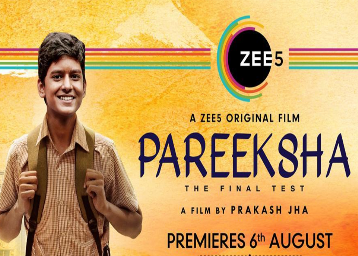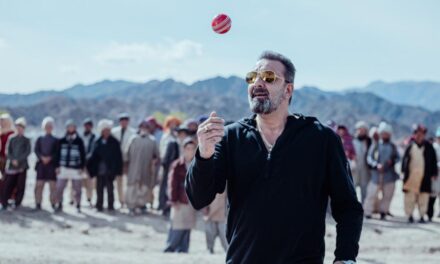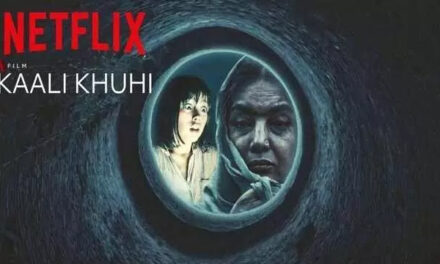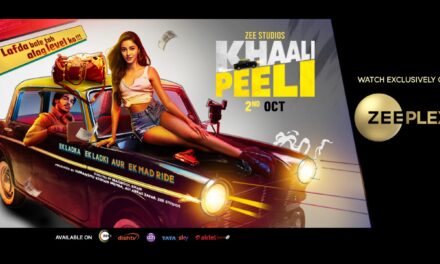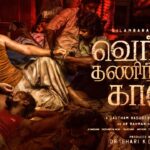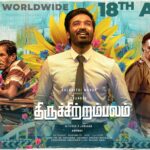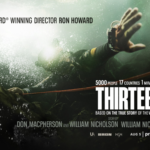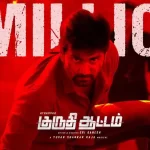Director: Prakash Jha
Cast: Adil Hussain, Priyanka Bose, Shubham Jha, Sanjay Suri
Pareeksha-The Final Test, written and directed by Prakash Jha has had a direct release on the OTT platform Zee5.
In the opening scenes, we see a jovial rickshaw-puller Bucchi (Adil Hussain) collecting and dropping children off at an elite English medium school. In scenes that follow, we also witness how his own son Bulbul (played brilliantly by the youngster Shubham Jha), grapples in a typical ‘Government school’.
These initial scenes made me a little pragmatic, as this educational theme has been addressed numerous times already in the Indian film panorama. Still, I was curious and wanted to find out if the treatment in this film was different.
I had my answer over the course of the film and wasn’t left entirely disappointed. While most films in this genre play around an ‘outsider-underdog student’ rhetoric, and invariably have a teacher as the pivotal character, Pareeksha subverts some of these clichés, while not all.
This film is narrated almost entirely from a parent’s point of view. Bucchi seems to have made his mind up, that his son would need English medium education in a CBSE school to have any hopes of not ending up pulling rickshaws like himself.
What initially starts as a pipedream, becomes a meditation and then a manic obsession for Bucchi, to somehow get Bulbul admitted to Sapphire International, the elite school that apparently ticks all these boxes.
Some of the writing here is actually quite novel. I particularly loved this scene, where after being turned away by some staff, Bucchi dresses Bulbul up in Sapphire’s uniform and waits in the rain outside school to catch the Principal’s attention.
Thanks to his academic brilliance, Bulbul does finally get to join Sapphire, but the film also takes an interesting narrative turn here. Instead of focusing on Bulbul’s inductive weeks in school (we do get a few familiar scenes, as you can imagine), the story focuses more on a larger question. How would a rickshaw puller like Bucchi pool in the financial resources required to sustain this enterprise?
Sadly, the answer isn’t fairy-talish. We see Bucchi slip first into amoral low ground and then the pits of crime itself to make ends meet. What starts with a legally harmless but deplorable act of not returning a wallet left behind by a passenger, slowly escalates into regular petty thieving and ultimately full-fledged burglary.
Interestingly, while I was researching about the production and release of Pareeksha, I chanced upon reports on how British director Peter Webber had also watched it and compared it to an all-time classic film, Vittorio De Sica’s Bicycle Thieves. That film, set in post-war Rome also revolved around filial affection between a father and his young son, and the moral depths to which the father ultimately stoops to keep his family happy.
But here’s the thing. De Sica’s film was a pioneering effort in the Italian neo-realism film movement in the late 1940s. Its soul lay in how he only shot on location and used semi-pro or non-pro actors to bring a new degree of realism into his cinema.
In contrast, I felt Pareeksha lacked a little in this respect. In many scenes, I could sense that the actors were almost too ‘aware’. I would have liked both the writing and acting to be a little more immersive and organic.
The script could have also used a little more variety, or at least some trimming. Some references and dialogues get quite repetitive. For instance, I lost count of the number of times Bucchi remarks ‘Aage Badna Hai…’ at various points in the film! I understand how the writers are trying to emphasize certain facts to the viewers here, but at the end of the day, the audience is also smart and we get it. To borrow from a topic the film addresses, we don’t require this ‘extra coaching’!
Pareeksha is a film that has some flaws, but this doesn’t stop it from being important and socially very relevant. Especially in the pandemic times we live in today, we are witnessing how financially well-off private schools have quickly embraced online learning, while this still remains a big challenge for many Government schools. Perhaps, more than the gulf in the quality of teaching itself, it is this gulf in access to technology that warrants urgent attention.
Overall rating: 3/5

